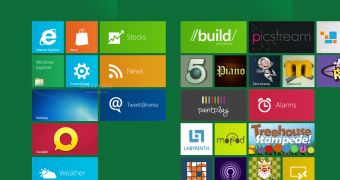Next year, Microsoft will have a new version of their desktop client available for purchase, namely Windows 8, but the platform’s success in the PC area seems fairly questionable.
A recent report from IDC notes that Windows 8 might not benefit from increased uptake in the desktop PC area, mainly due to it being aimed at tablet PCs and other devices with touch-enabled displays.
Al Gillen, Program VP, System Software, summarizes the firm’s findings in a recent tweet: “SIS 2012 Prediction 10: Windows 8 Will Launch with Split Success.”
The researchers at IDC expand their thoughts in the new “Worldwide System Infrastructure Software 2012 Top 10 Predictions,” document that was delivered to their customers.
What they believe is clearly something that people have been discussing ever since Microsoft showcased Windows 8 in September at BUILD, when it also made available for download the Developer Preview of the platform.
“Windows 8 will be largely irrelevant to the users of traditional PCs, and we expect effectively no upgrade activity from Windows 7 to Windows 8 in that form factor,” IDC’s prediction document reads, ZDNet's Mary Jo Foley notes
The research firm also suggests that Windows 8 might become generally available sometime in mid-2012, and that new PCs running under it will arrive on shelves before or during August next year.
Since they have just moved to Windows 7, enterprises might not plan on adopting the new platform version, IDC also notes. The OS arrived much too soon, it seems.
The Metro UI in Windows 8 is the feature that tablet PC owners will appreciate the most, but also what would keep desktop users away from the platform.
However, the Redmond-based company did promise UI changes in Windows 8 for desktop PCs, since they cannot use fingers or styluses for navigation, but rely on keyboards and mouse instead.
However, it appears that analysts are uncertain on OS’ ability to fare great on the tablet area as well, regardless whether loaded on x86- or ARM-based devices.
“(T)here will be intense scrutiny on Microsoft’s ability to deliver a successful tablet experience aboard both x86-based tablets and on devices running ARM processors,” the said predictions document reportedly reads.
“This is a tall order for Microsoft, and while the x86 tablet strategy makes sense as a transitional solution for today’s PC users, it will be the ARM-based devices that need to shine and clear a high bar already set by Apple.”

 14 DAY TRIAL //
14 DAY TRIAL //